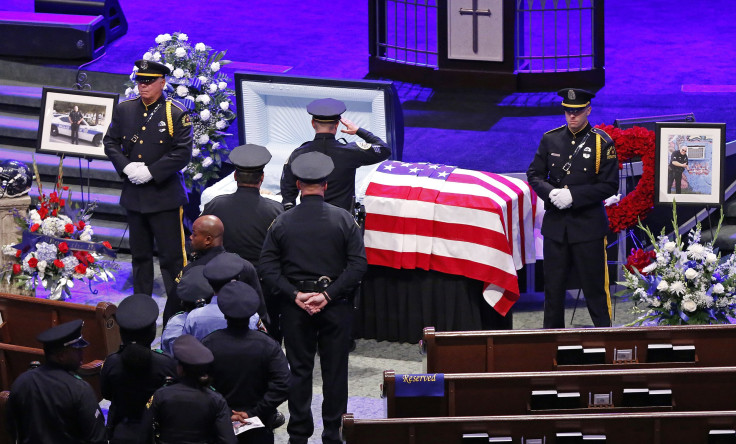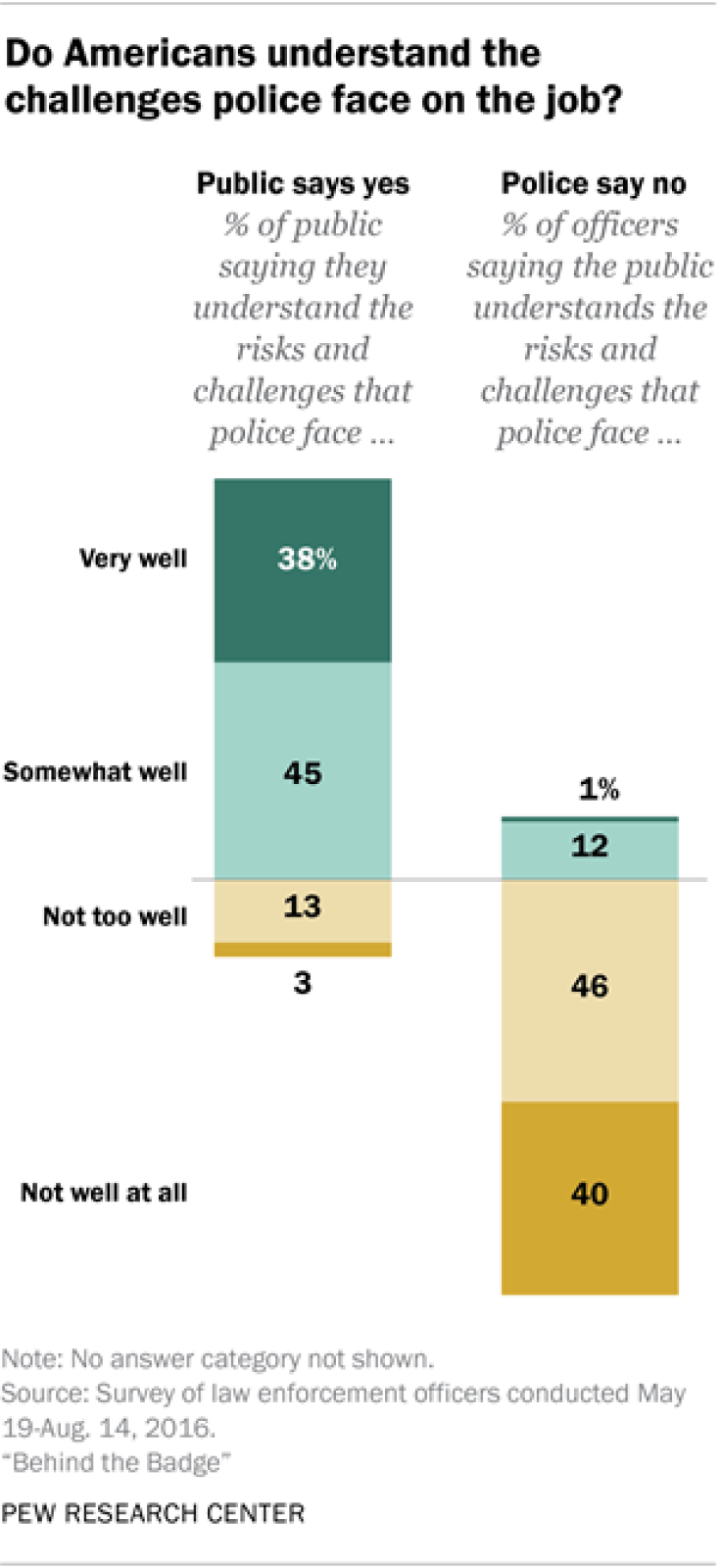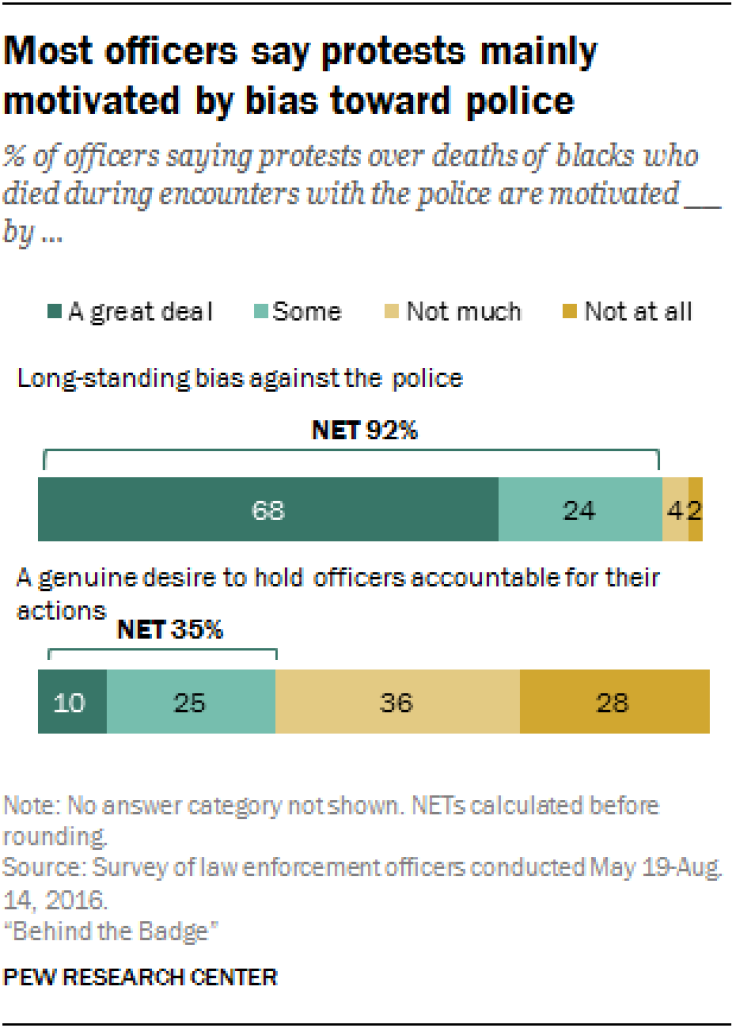Blue Lives Matter: Majority Of Police Believe Public Misunderstands Risks And Rewards Of Police Work, Survey Finds

A new survey suggests that the "Ferguson effect" — officers backing off of policing out of fear that their actions will be questioned after the fact — is real. It also alludes to a major divide in opinions and attitudes in certain regards as 86 percent of police disagree with 83 percent of the public who answered in the affirmative when asked if the public understands the risks and rewards of police work.

Proving that the Ferguson effect may be true, the findings of the report say that three-quarters of officers are reluctant to use force, even if permitted and required, and are also less inclined to stop and question suspicious people.

The national survey conducted by the National Police Research Platform and published by Pew Research Center, titled Behind the Badge, questioned nearly 8,000 policemen and women, including 100 officers from 54 police and sheriff’s departments between May 19 and Aug. 14 last year. Most of the survey was conducted ahead of the slaying of police officers in Dallas and in Baton Rouge in July that collectively killed 8 police officers.
The report is a reflection of deteriorating relationship between law enforcement officers and the citizenry that followed protests and movements such as Black Lives Matter, which sparked national discussions over police methods and conduct. But, in stark contrast to the public, about 80 percent of police say no further changes are necessary, compared to a separate Pew Research Center survey of U.S. adults, 60 percent say these incidents are symptoms of a deeper problem.
Furthermore, about 68 percent of officers feel that anti-police bias is fuelling the demonstrations rather than "a genuine desire to hold police accountable for their actions”. The report also suggests a discrepancy in the police perception of demonstrators, depending upon their racial and ethnic identities. More black officers believe that the protests are “genuine acts of civil disobedience designed to hold police accountable,” compared to their white counterparts, who are more skeptical.

"White officers and black officers have very different views about where we are as a country in terms of achieving equal rights," said Kim Parker, the director of social trends research for the Pew Research Center.
In what is also to be a major test that will determine whether police and public will be at odds at each other in 2017, officers are divided about their role in identifying undocumented immigrants rather than leaving the task to federal authorities. By a narrow margin, more police members believe that they would be handling the task.
Some of the other key findings:
— 86 percent of officers said that fatal encounters between blacks and police have made policing more difficult
— 93 percent said they're more concerned about safety
— 76 percent said they're more reluctant to use force when appropriate
— 75 percent said interactions between police and blacks have become more tense
— 72 percent said they or their colleagues are more reluctant to stop and question people who seem suspicious
— 27% said that they have discharged their service firearm while on duty
© Copyright IBTimes 2024. All rights reserved.












